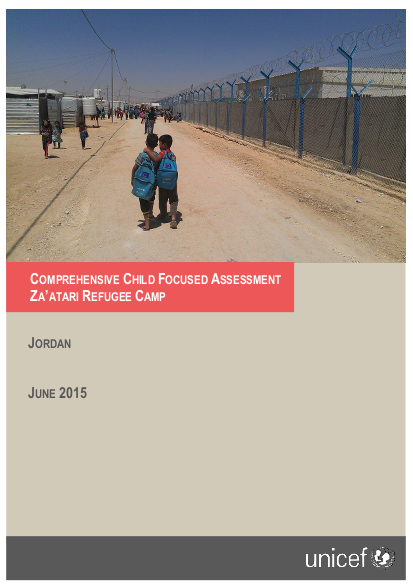
The United Nations Children’s Fund (UNICEF) has been working with implementing partners in Jordan to provide vital services which aim to minimise the negative implications of forced displacement on families and their children. This includes the provision of formal and informal educational programmes, health services, water delivery, sanitation and hygiene promotion activities, programmes for children with disabilities, and psychosocial support through child, youth and adolescent friendly spaces. In order to assess the access to and use of these services, and the situation in camps across areas of UNICEF support, a comprehensive child- focused assessment was conducted in both Za’atari and Azraq camp in February and March 2015 in collaboration with REACH. This report outlines the findings from the Za’atari assessment.
Since the last child focused assessment of this scope over a year ago, new programmes, facilities and services have been established, structural changes have been on-going, and the flow of people into and out of the camp continues to fluctuate in response to external factors in the host community such as reductions in food assistance, a shift in access to public health provision outside of the camp, and seasonal employment opportunities. Further, residents’ knowledge and expectations of services have changed over time, with a need to monitor whether programmes and activities are effectively matching the changing needs of the community. Therefore, this assessment aims to fill these information gaps, with a focus on UNICEF-supported programming areas. The assessment covered all households in the camp, representing 75,878 individuals, more than half (57%) of whom were reported to be children.
